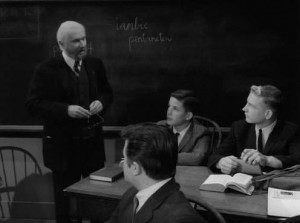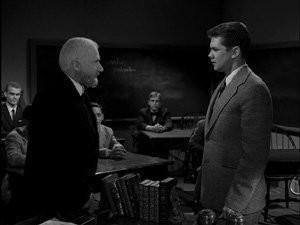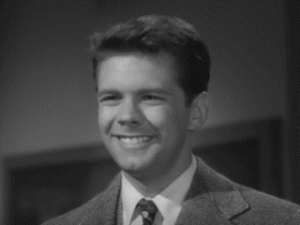If you admire somebody, you should go ‘head and tell ’em
People never get the flowers while they can still smell ’em
Big Brother, Kanye West
It has been said that there are but only two sureties in life: death and taxes. It is true we will invariably remit some of our income to a government and we all shall have to face our own mortality someday. However, in between growing up and older and before we perish from this earth, we must examine our place in the world and what we have done to ensure we have left it better for those who will inherit it.
Every man—as the brash, self-focused energy of youth matures into the future-oriented patience of middle and older age—finds that living for one’s self is never enough; one must endeavor to make the world a better place for others. This realization presents itself in many forms, most commonly falling in love and marrying a woman or dedicating one’s professional work to helping the less fortunate.
Those two decisions and a slew of others reflect a man keenly aware that his fate in this world is never his alone—it is inextricably bound up in the lives and well-being of others.
For a lot of men, this desire takes the form of mentorship of boys and younger men. There is quite possibly no greater calling for a man than the time-honored act of the bringing up of young boys into men, an act whose seeming ubiquity is dwarfed only by its staggering importance.
Between the careful ministration of boys, to the demands placed on young men to realize their potential and the stewardship of those lost somewhere in between, there might be no acts of greater import than the education and mentorship of the next generation.
In The Twilight Zone episode “The Changing Of The Guard,” features a man, Ellis Fowler, who has dedicated his life to stewardship of young men. A gentle, unassuming man of letters, he has led a long life—a half century, to be exact—as an educator at a preparatory school for boys and young men. His timid bookishness is matched only by his devotion to his pupils.
Suddenly, one pale, wintry afternoon after the close of fall semester, the headmaster of the school informs Ellis that he has been relieved of his duties as a professor and must retire. As he slouches into his chair, he is rather indifferently informed that he has grown too old to relate to the youth of the day. A “changing of the guard” must happen.
Ellis retreats to his house, where he is overcome with melancholic nostalgia. Painfully aware of his advanced age and uncertain of his legacy in the world, he convinces himself that he has accomplished nothing in his long life. He ruefully proclaims, “I gave them nothing at all.”
He taught no men the beauty of prose, the love of knowledge nor the values of honor, decency or compassion. Terrified and despondent over the seeming uselessness of his life, he decides to end it all.
The aging former professor takes his pistol, heads to a statue of Horace Mann on campus and resolves to kill himself. As Ellis stands in the snow next to the bust of Mann in the darkest of night, he can hear the strange chiming of a school bell and is drawn back to his classroom. Befuddled, he takes a seat in his chair and notices that his classroom is filled with the quiet, reverential ghosts of students past.
One by one, they approach the professor, informing him of their class and when and why they had died. They recite to him choice quotes from poems and short stories he told them, telling them how the beauty of prose apprised them of values like honor and courage.
They all impress upon Ellis that without his tutelage and his love of literature, they would not have become the men they became and died as.
Overcome with grateful tears and wondrous relief, Ellis returns home a complete man. He is now able to peacefully retire, his heart and mind full with the satisfaction that one can only feel when one’s life project has reached completion. The changing of the guard, as it were, will happen and Ellis wouldn’t have it any other way. To wit, Serling’s closing narration:
Professor Ellis Fowler, teacher, who discovered rather belatedly something of his own value. A very small scholastic lesson, from the campus of the Twilight Zone.
No man achieved anything of importance in life without the aid of other men. Whether the accomplishment is mundane but profound like maturing as a man or as weighty and specific as, say, becoming a jurist on the Supreme Court, every man is helped along the way by other men.
What men often forget is to remember, recognize and edify those who have given to them. Lost amongst the shuffle of growing up, career accomplishments, and even becoming a mentor themselves, men forget to credit their own mentors. It is a terrible mistake and a grave disservice to those who have so helped a man. A man should beware the ungrateful and be wary of becoming ungrateful himself.
In the aforementioned episode, Ellis Fowler’s psyche is in crisis because he felt—for a time, at least—his efforts as a mentor were in vain. While teachers do often have the burden of never knowing exactly how their wards turn out, they still want to feel that their ministrations have helped inculcate positive values like faith, love of learning and courage.
Ellis’ soul is in turmoil precisely because for him to feel like his life was, in fact, purposeful, he needed to have changed the lives of his charges for the better.
At his darkest hour, Ellis had the epiphany that he did change many young men’s lives for the better. His deceased students explained to him in great detail the profound effect of his stewardship. His existential terror over a life lived for naught is extinguished in but a series of grateful acts from beyond the grave.
Situations like Ellis’ could be avoided if men were simply more mindful of the gifts they have been given in life and from whom they have received them. It is extraordinarily easy to simply take and never give, to ask and never thank and to take for granted the contributions of those who have shaped you into the man you are today.
How many Ellis Fowler’s are in your life? Think of the all the men who have invariably affected your life for the better, all the Ellis Fowlers who cleared the brush from the path, laid down bricks so that you might walk ahead and enjoy life. Do you acknowledge what they have done for you?
Never forget to thank your mentors. Whether it is a simple note scrawled at home for your father or buying a bottle of brandy for an old friend to remind him you haven’t forgotten his support, always remember to honor those who have helped pave the way for you.
Real mentors are as few as time is short in this crazy world. They deserve to know when they have made the world a better place. As in the case of Ellis Fowler, you might just save a life. Who knows, it might even be your own someday.


